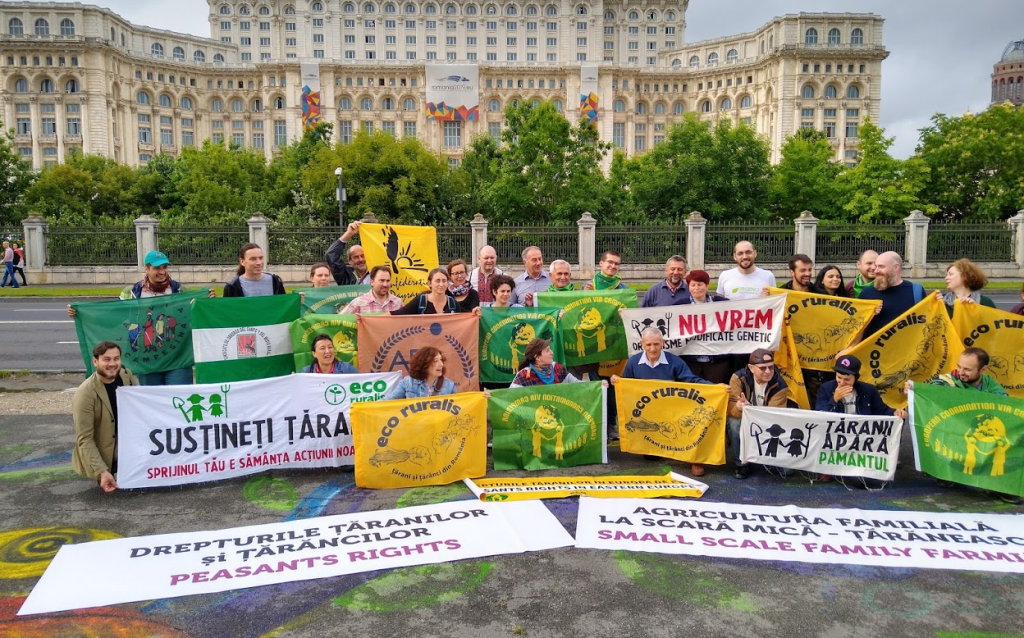Disguising business interests with citizens’ environmental concerns, biofuel production and the deregulation of GMOs were among the priorities on the agenda of the meeting of EU agriculture ministers in Bucharest, Romania, these last few days. At the last minute, the Romanian Presidency of the EU requested that the reform of the CAP be dealt with in this Council, for which it sent a draft, with the aim of furthering negotiations ahead of the next Official Council meeting on 17 June, although there are countries that refuse to further discussions until the EU budget is concerted.
The Bio-economy Strategy was the guiding thread of the ministers’ debates, a plan aimed at “paving the way towards a more innovative, resource-efficient and competitive society”, which translates into the transferring of public funds to the largest private corporations and the expansion of their market. A proof of this -and considered a success story by the Romanian Presidency- is the Bio-based Industries Joint Undertaking, where corporations such as BASF, Total and Cargill operate.
In addition, the draft proposals on the CAP put forward by the Romanian Presidency, underpin the interests of the largest farms and industrial models, since it proposes eliminating the compulsory redistribution of aid.
Since the participation of civil society was refused by the Romanian Ministry for Agriculture, an alternative gathering was organised just a few metres from the EU event. Several small farmers’ organisations, Via Campesina, its Romanian member Eco Ruralis, Friends of the Earth Europe and civil society from Europe and Central Asia, along with human rights experts, met in a series of thematic forums to bring the implementation of peasants’ rights to the CAP and the two regions.
Stanka Becheva, food and farming campaigner at Friends of the Earth Europe said:
We might think we’re paying for cheap food, but really this is costing the Earth. Environmental impacts from industrial farming, promoted by EU farming policies, like climate change, food waste, and biodiversity collapse are too high a price to pay.
Ramona Duminicioiu, Romanian peasant, representative of Via Campesina Europe said:
Tens of millions of peasants expect from the EU process a shift towards a human rights approach, a response to the economic, social and climate crisis.
Jose Miguel Goncalves of Via Campesina Europe said:
Today, in most countries, the income of farmers is on average half the income of the other citizens of each country. On top of that, the distribution of CAP income support that should compensate farmers for the EU’s policy of low production prices actually excludes 40% of European farmers and rather focuses on the 8% who receive 75% of the support. This is unacceptable.







